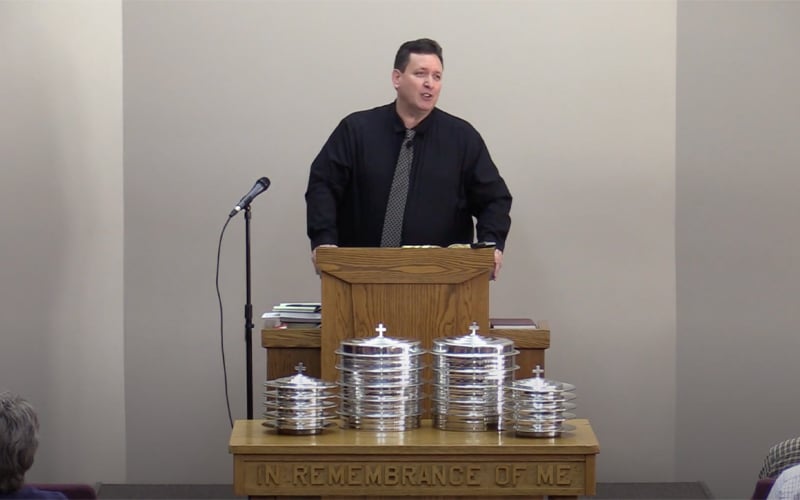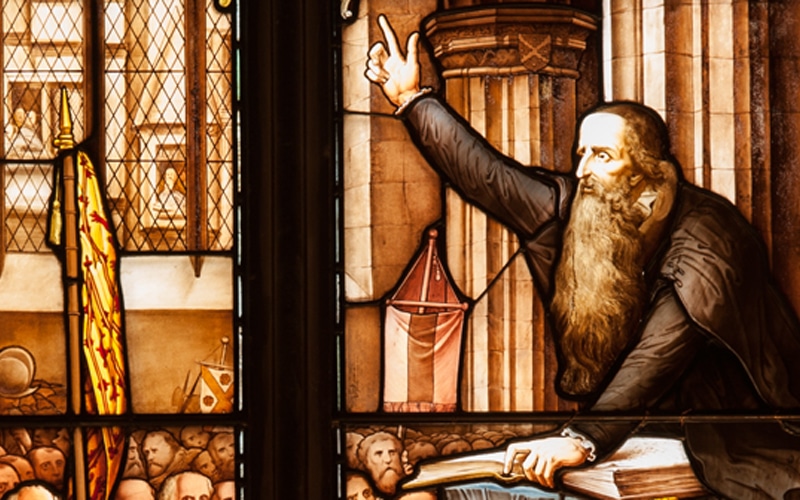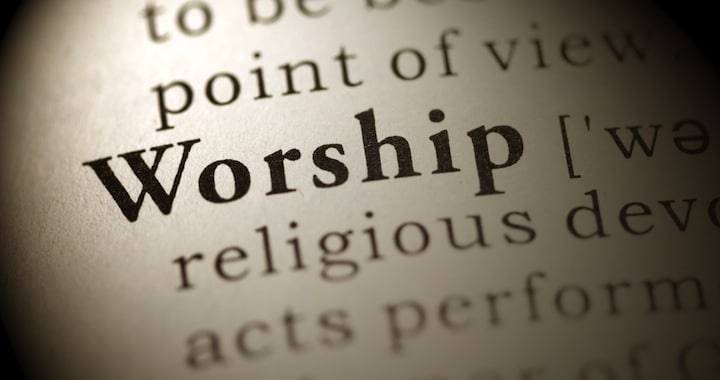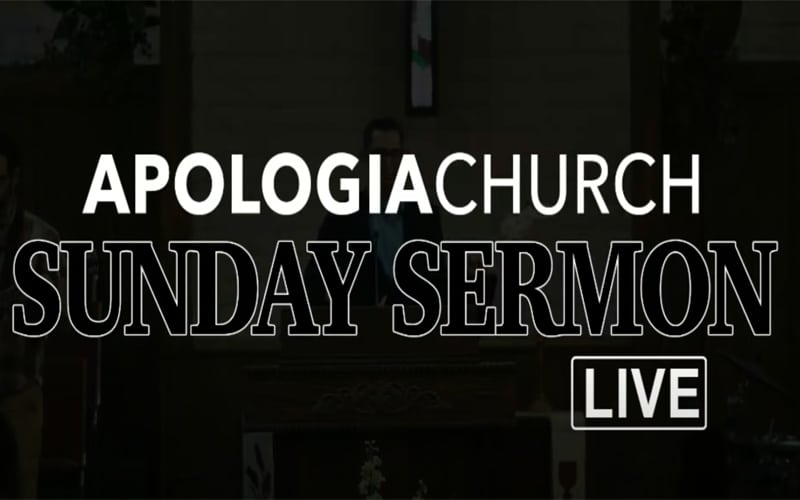
Water Baptism Before the Lord’s Supper?
As we read the book of Acts, chapter 2, a definite sequence can be observed. All who repented and believed the gospel were water baptized and in doing so were recognized as full citizens in God’s kingdom and immediately became active members in the local Church.
“So then, those who had received his word were baptized; and that day there were added about three thousand souls. They were continually devoting themselves to the apostles’ teaching and to fellowship, to the breaking of bread and to prayer.” – Acts 2:41,42
Repentance involves a change of mind resulting in a complete change of direction – a 180 degree about-face – turning away from a self-centered life of sin and a turning to God.
Faith means believing the gospel of the Lord Jesus Christ, confessing Him as personal Lord and Savior, trusting in His complete redemptive work in His perfect life, His atoning death and His physical resurrection – being saved from the wrath we deserve by grace alone through faith alone in Christ alone.
Water Baptism refers to full immersion in water. Baptism does not save! This cannot be over-emphasized! We are saved by grace alone, through faith alone, in Christ alone, plus nothing… minus nothing… However, those who are “saved” are immediately commanded to be water baptized, which involves a personal declaration of full identification and complete union with the Lord Jesus Christ in His death, burial, resurrection and ascension.
Using a sports analogy, water baptism is like putting the team jersey on, which then allows the player to enter the field of play. No one plays on the field without the uniform. So, while you may be a genuine Christian, the Lord Jesus commands you to be water baptized. Baptism is a matter of obedience as a follower of Christ. Acts 2:38 says, “Repent and be baptized every one of you…”
Membership in the Local Church: Believers share a rich spiritual life together as brothers and sisters in the family of God. The Lord has established the local Church as the designated place for each baptized believer to gather together to receive the ‘means of grace’ – where the word (gospel) is rightly preached and the sacraments rightly administered. It’s the setting for each believer to give and to enjoy Christian fellowship and support, all in a protected environment under the watchful care of His under shepherds (elders).
If we were to imagine being present to observe the events of Acts chapter 2, can you imagine someone coming to the Apostles and asking something like, “I am not wishing to be baptized but would like to receive the Lord’s Supper. Is that ok?”
I think the short answer such a person would receive would be, “No, that is not ok!”
Instead questions might be asked of this person such as “Why would you not wish to be identified with the Lord Jesus Christ in baptism? Do you not believe in Him? If you do believe in Him, why would you not obey Him? Are you really a follower of Christ? If you are, why would you not wish to identify with Him in the way He has commanded?”
The Lord’s Supper is not an outreach tool for evangelism but a holy ordinance for the people of God. It is a family meal for those who are identified with Christ in baptism and members of the local Church.
In our day, the Church has adopted many non-biblical ideas and traditions in presenting the gospel. These include raising a hand, walking an aisle, praying “the sinner’s prayer” and signing a card… What do all these have in common? The answer is: None of these are mentioned in Scripture. These are man-made substitutes for the public declaration of our repentance and faith expressed in obeying the command to be baptized in water and then becoming members of a local Church. There is no doubt that today’s widespread non-biblical practices in the Christian community has led to much confusion in the minds of many. Yet the Bible is more than clear on these matters.
In the early Church, there was not such a “thing” as an unbaptized Christian. All who received God’s word (who believed) were baptized; who were then added to the Church as members; and all of these began to participate in the everyday life of the Church; teaching, prayer, fellowship and the Lord’s Supper.
Note once again the sequence found in Acts 2:
“So then, those who had received his word were baptized; and that day there were added about three thousand souls. They were continually devoting themselves to the apostles’ teaching and to fellowship, to the breaking of bread and to prayer.” – v. 41,42
No one fell through the cracks. There were no cracks. All who repented and believed were water baptized and added to the church in membership and then participated in the life and benefits of the local Church. I believe this is the Biblical pattern for us today.
Here is a helpful interchange found at the 9Marks website, in the form of a question and answer dialog:
Dear 9Marks,
Question: I’m in agreement with your explanation on child baptism. My children (ages 14 and 12) give strong evidence of saving faith, yet we have decided to wait on baptism for some of the reasons you state. The struggle I have is how this affects the Lord’s Supper. Would you also say that only baptized believers should take part in communion? We began having our children participate in communion when my son turned 12 and my daughter turned 11. If this is improper (due to them not being baptized yet), are we not then withholding the blessing of the Lord’s Supper from our believing children?
—Adam
Dear Adam,
The short answer is, I agree with the fairly traditional line that you will find in most Baptist statements of faith, namely, that baptism “is a prerequisite to the privileges of church membership and to the Lord’s Supper” (Baptist Faith & Message 2000). Baptism is the front door to the church through which you walk once; the Lord’s Supper is the family meal that you enjoy repeatedly and regularly.
So, no, I would not give the Lord’s Supper to anyone who has not received baptism. And for what it’s worth, that’s not just a Baptist position, but something that every Christian tradition has historically affirmed (Presbyterians, Anglicans, Lutherans, Eastern Orthodox, Roman Catholic, etc.). Baptism, then the Supper.
Baptism and the Lord’s Supper are the two signs given to churches by Christ to mark off those who belong to him. Who are the people of God on earth? Those who are baptized into church membership and then receive the Lord’s Supper. They are public identity markers, and they are meant to go together. They are not just individual acts, but corporate acts. It’s not just the individual saying something in baptism and the Lord’s Supper, it’s the church saying something as well.
In baptism, the church declares that someone is identified with “the name” of Father, Son, and Spirit (Matt. 28:19), such that those individuals can now gather “in the name” of Christ (Matt. 18:20). In the Lord’s Supper, every member of the church declares themselves to be a part of the one body, and the one body declares every member to be a member of that one body.
Paul writes this in 1 Cor. 10:16-17, “The cup of blessing that we give thanks for, is it not a sharing in the blood of Christ? The bread that we break, is it not a sharing in the body of Christ? Because there is one bread, we who are many are one body, for all of us share that one bread.”
In light of all this, I have two questions for you: (i) what blessing do you think you are withholding from your children? The unique blessing that the Supper offers is for individual and church to declare together that they are one body. But it seems like you deliberately mean to withhold that blessing by not baptizing your children. (ii) You refer to your “believing children.” If you are willing to confidently affirm them as Christians, why wouldn’t you ask the church to baptize them and affirm them as Christians?
In other words, what I hear you saying is, you’re willing to have the church affirm them as believers through the Supper, but you’re not willing to have the church affirm them as believers in baptism. I’d encourage you to give both of the ordinances to your children, or neither. The ordinances are not meant to be divided, where we give one but not the other. Most Paedobaptists do, I understand (giving baptism but withholding the Supper for a time), but you didn’t pose your question to a Paedobaptist! I hope this is helpful.




